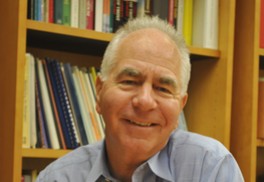Read the full article at the Mailman School of Public Health here
In March 2011, pro-democracy protests erupted in Syria. Violent conflict between demonstrators and government forces spiraled into what is now, four and a half years later, a civil war that has killed more than 200,000 people and forced more than 4 million people to flee the country, with millions more families displaced inside Syria’s borders.
In a new video, Neil Boothby, Allan Rosenfield Professor and Director of the Program on Forced Migration and Health at the Mailman School, explains some of the unique health issues faced by refugees, especially those experienced by displaced children, and the broader public health challenges caused by mass migrations of people.
The vast majority of Syria’s refugees have fled to neighboring countries, such as Turkey, Lebanon, and Jordan. In Lebanon, now host to more than a million Syrians, roughly one in every four residents is a refugee. This huge influx of people has overwhelmed support systems in these nations, including healthcare and education. As a result, many refugees are looking to move to Europe and beyond, making dangerous and sometimes deadly journeys to seek safety and opportunity. Now, as the crisis continues to make headlines, governments around the world are grappling with their refugee policies: how many people to let inside their borders, how to absorb them, and more.
According to the UN Refugee Agency, more than half of Syria’s refugees are under 18 years old. Before the conflict began, 90 percent of Syrian children were in school receiving an education; today, that figure is down to just 25 percent. Many children have experienced trauma, and an unknown number have been separated from their parents. “What is going to happen with a generation of children who are uneducated and exposed to brutalities and extreme ideologies? It’s a major international relations and security challenge,” says Boothby.
The public health community has a role to play in this humanitarian crisis, by finding ways to care for the vulnerable refugee groups and helping systems prepare to absorb populations. Mailman School alumni and faculty are working in Jordan and Turkey to identify training needs for healthcare professionals, to explore how to develop capacity at the community level, to look at scalable responses to prevention and cure. Read more about the School’s work in the Population and Family Health newsletter.
